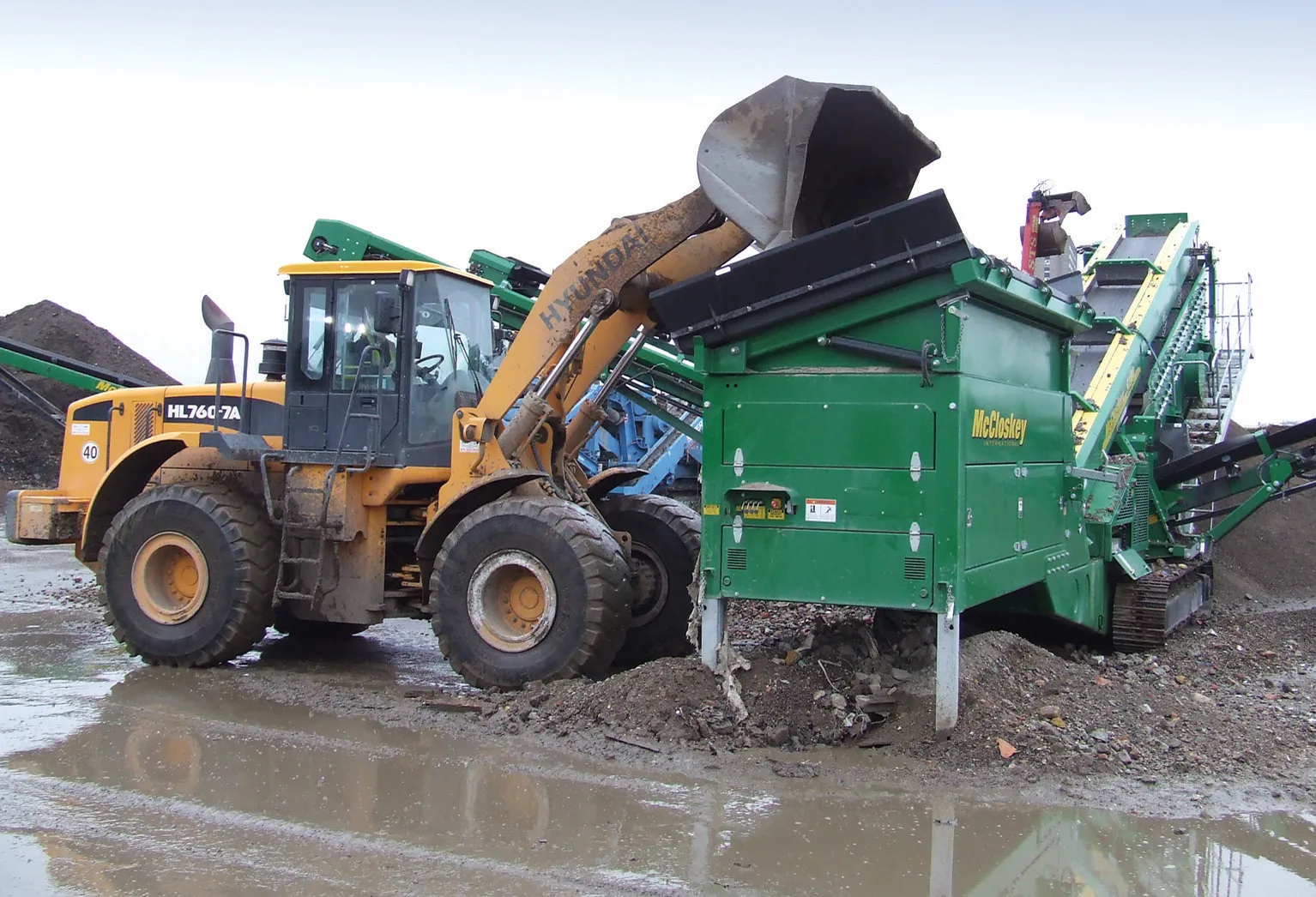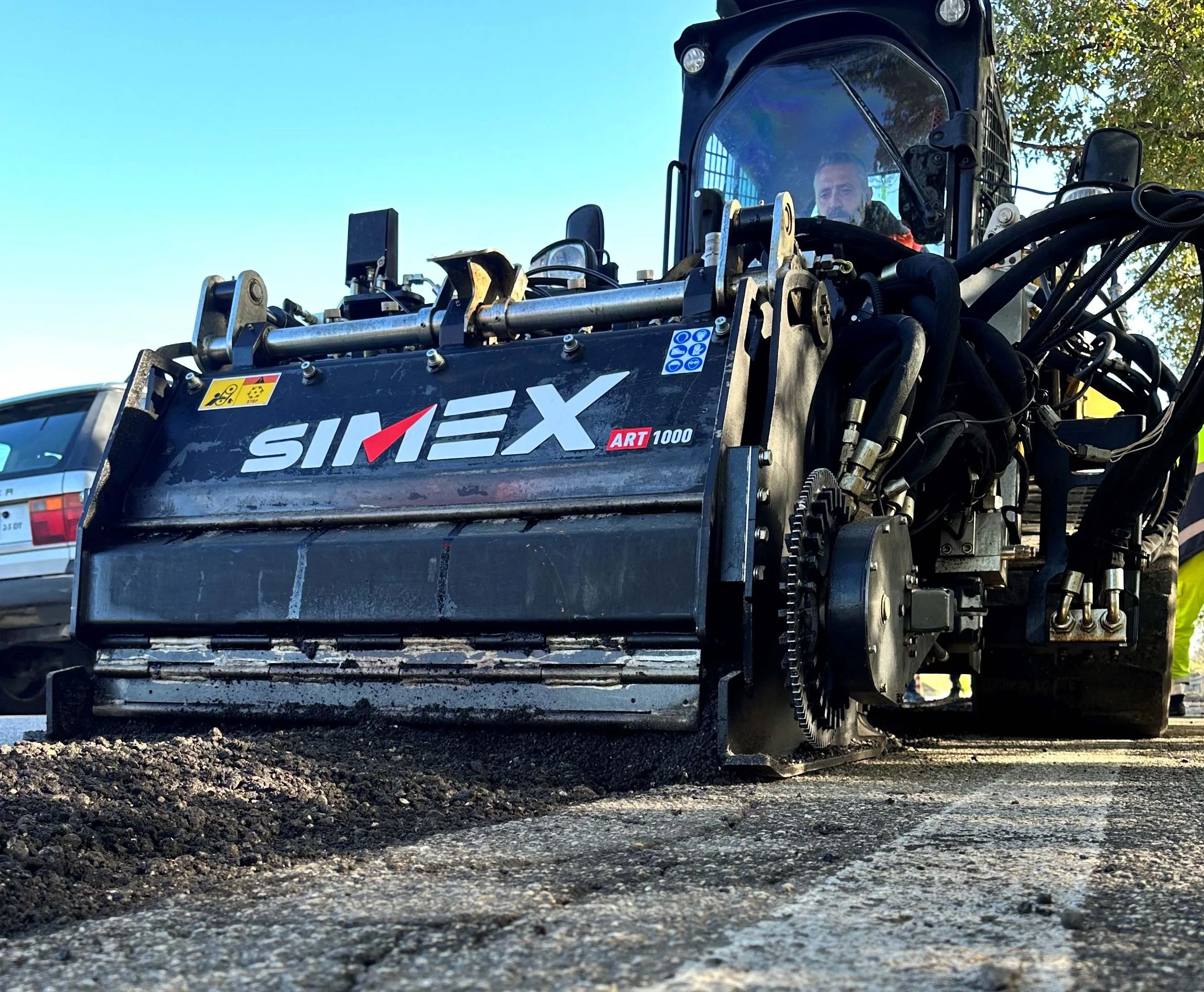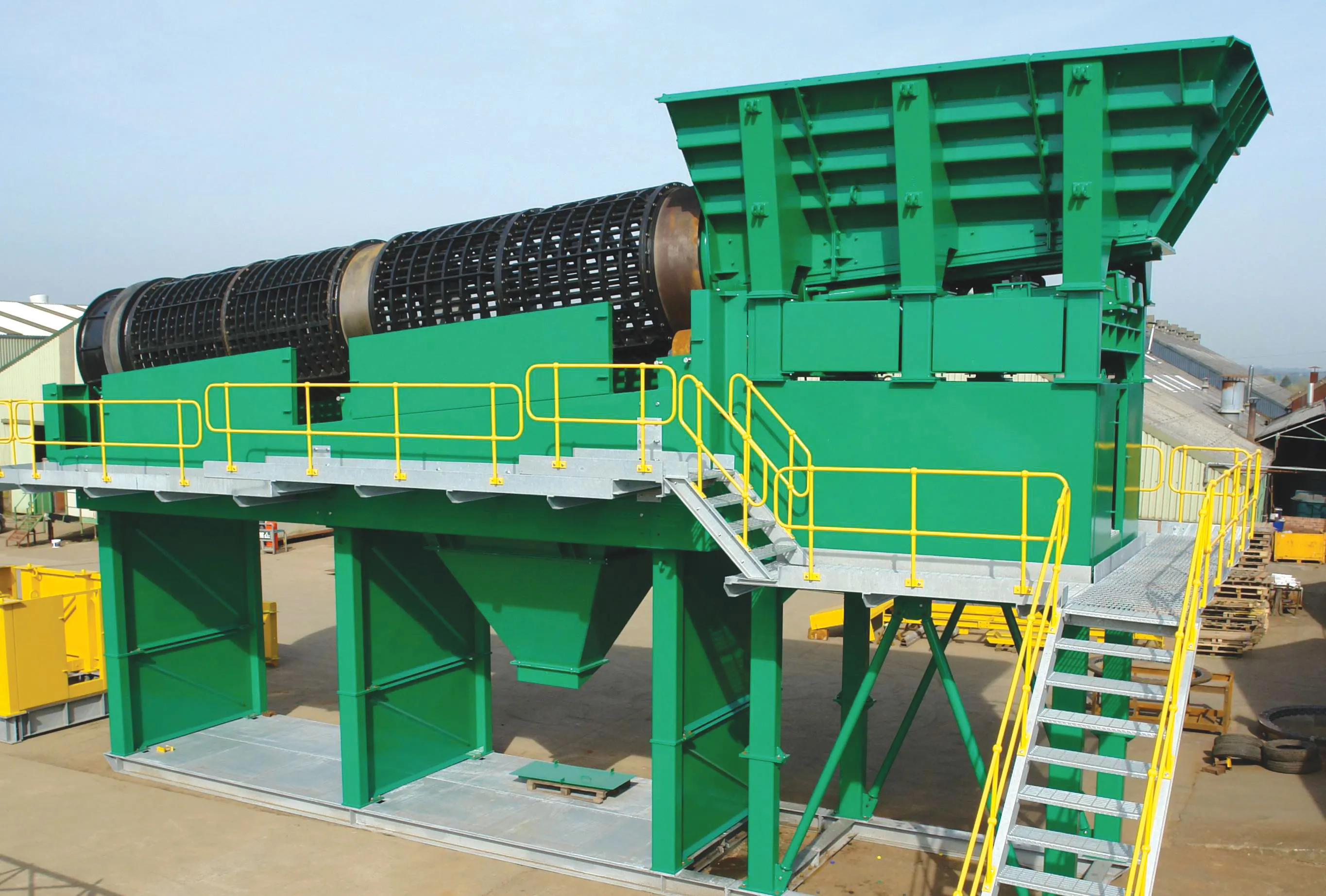McCloskey International machinery is said to be helping one British company enjoy growth and profitability, despite the current harsh economic climate. H. Sivyer (Transport) Limited, who deal in waste management, waste removal and the production, haulage and delivery of recycled and primary aggregates and hydraulically bound materials, initially used a McCloskey compact screener.
June 14, 2012
Read time: 2 mins

H. Sivyer (Transport) Limited, who deal in waste management, waste removal and the production, haulage and delivery of recycled and primary aggregates and hydraulically bound materials, initially used a McCloskey compact screener.
But the company, which has depots in Greenwich, south London, Farnham and Oxford, now also runs a 36tonne S190 Triple deck screener; a 34tonne R155 vibrating screener; a 28tonne 621RE Trommel; and a TS3050 tracked stacker.
Used in conjunction with a jaw crusher, the R155 is either used to remove fines before material is fed into the crusher, or positioned under the crusher conveyor to produce a clean Type One (75-100mm) or similar product.
The S190 is used as a stand-alone machine, producing a 10, 20 and 40mm product from the recycled crushed material. The 621RE screens the fines from the entire site down to 7mm, and produces a cleaned material that can, among things, be used as high quality top soil.
George Frazer, recycling manager at H. Sivyer (Transport), said: “All of the McCloskey machines are built to a very high standard; they are very sturdy machines. But it's the little things that show the real design and manufacturing quality, such as a light in the engine compartment for out-of-hours maintenance work, or two filler spouts to the fuel tank, one on either side of the machine, so it can be easily filled if backed into a tight space.”
Almost all of the material to be recycled at the depots comes from utility companies at a rate of 10-12,000tonnes a week, leading to over 200 vehicle movements/day.








